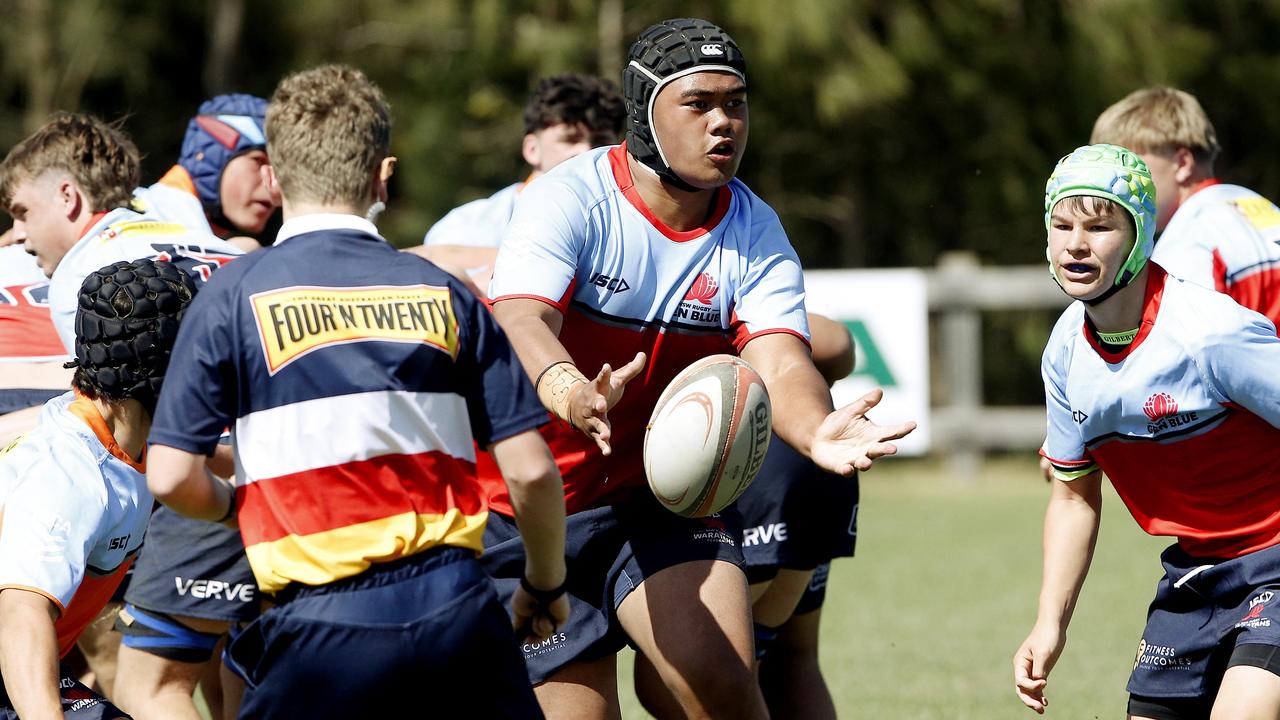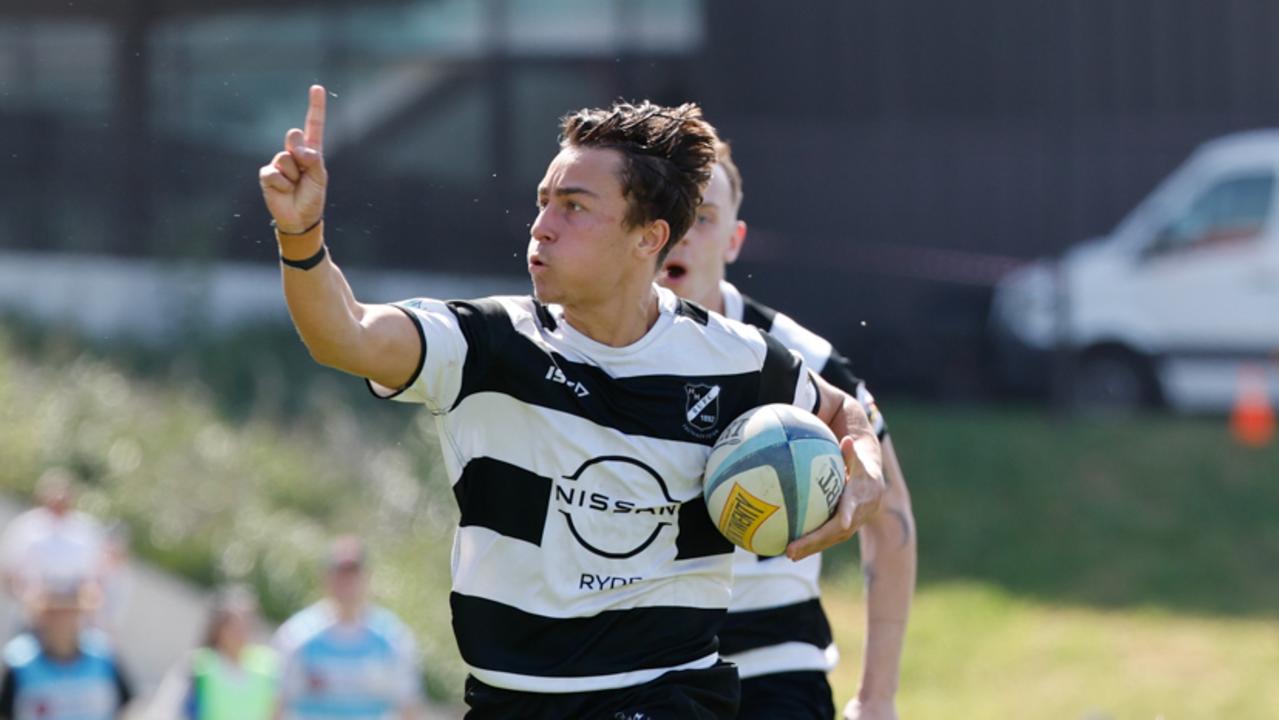How do you win a Rugby World Cup? We ask John Eales, Tim Horan and George Gregan
FOUR World Cup winning Wallabies — John Eales, Tim Horan, George Gregan and Rod Kafer — tells us what the current side need to do to win in England.
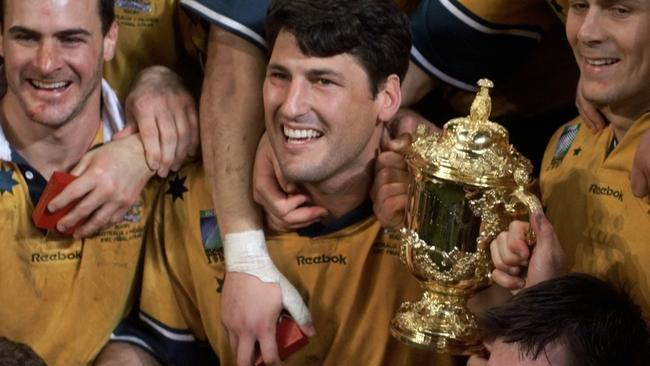
Rugby
Don't miss out on the headlines from Rugby. Followed categories will be added to My News.
If winning a Rugby World Cup was easy, everyone would be doing it (even the Kiwis more than the once, you would imagine).
But what exactly does it take to get your hands on the Webb Ellis Trophy, and what are the strengths and weaknesses of the Australia squad bidding to do just that in England?
We ask four former Wallaby champions and World Cup winners for their thoughts, and it makes for interesting reading ...
JOHN EALES
Three World Cups, 1991 and 1999 winner.
What is the one thing you have to know to win a World Cup?
You have to know where you can be the best in the world. You have to know what you can be best at.
As an example, the Wallabies could be the best in the world at the breakdown. Getting there fast, putting pressure on other teams at the breakdown. The breakdown is about speed and physicality, and we have to make sure we do both. You can’t be just one.
GREATEST UPSET: Minnows Blossom in to rugby folklore
SLOW START: All Blacks survive scare from plucky Pumas
WOUNDED WALES: Welsh facing injury crisis ahead of England clash
In 1999 we were the best defensive team in the competition, and in 1991, we were just ahead of the game in the way we were playing.
I have heard it described as the ensemble game; it was the integration of forwards and backs. In 1991 I think people were playing a fairly one dimensional game but we put together a very good forward pack with a very good backline.
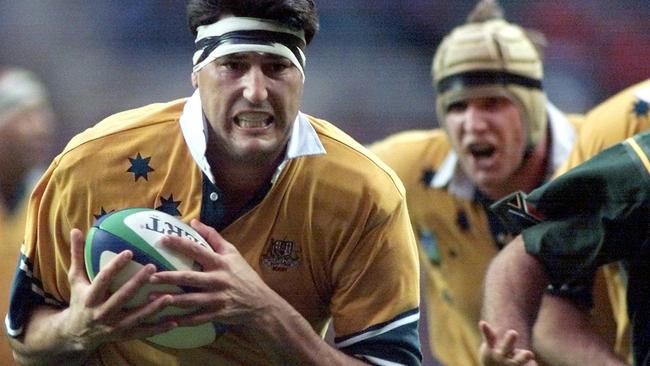
What is the banana-skin moment coming for these Wallabies?
If you knew that, you’d be able to prepare for it! There will be tight games, as there always are. We had Samoa and Ireland in 1991, and the semi-final against South Africa in 1999. Getting through those games is important.
But the banana skin is having a potential injury at the wrong moment and not being able to adjust for it on the field. That’s probably the biggest one. A mid-match injury and not being able to adjust.
What is Australia’s biggest strength and biggest weakness?
Our breakdown and fitness I believe will be great strengths, and our weakness has been our consistency, but you get the sense that is improving.
I don’t think Michael Cheika’s selections this winter have been a factor. Our consistency has actually been better than it has been for many years. There was really just the one blip in terms of performance, in that Bledisloe in Auckland, and I don’t think that can be put totally on selections.
If Australia are to win, they’ll need a player of the tournament winner. Who can it be?
It is probably one of Michael Hooper, David Pocock or Israel Folau. Those guys are in form and I can see any of those three winning a player of the tournament award.
***
TIM HORAN
3 World Cups, 1991 winner, 1999 winner.
What is the one thing you have to know to win a World Cup?
You have to know that you can’t be shy. You can’t sit back and wait for things to happen in a World Cup.
You can get caught playing conservative rugby in a World Cup, potentially.
You can’t worry about making a mistake, and trust in your teammates has to be rock-solid to create that environment.
In 1991 and 1999 we had so much trust in the entire squad. You knew the guy standing next to you had your back, and he knew you had his.
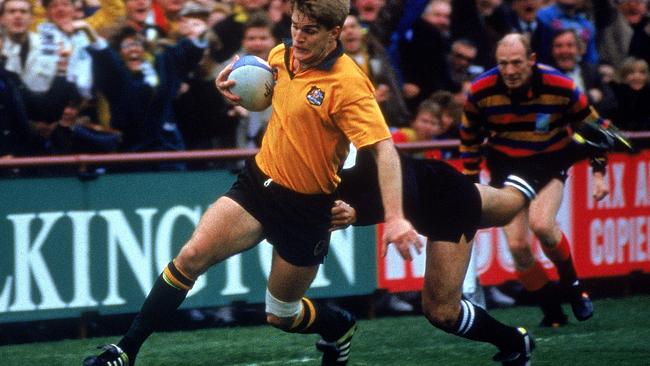
What is the banana-skin moment coming for these Wallabies?
The banana skin is probably the lack of combination, the lack of the top 15 guys playing together for the last 12 months.
It is a different approach taken by Michael Cheika, because he wanted to have any player capable of swapping out and playing any position at any time, and I think he has succeeded there.
This squad has the most depth of any we have taken to any World Cup.
In any position, a guy who doesn’t make the top 15 could come on and fit in seamlessly.
But combinations are also important and they take a bit of time.
Look at the All Blacks and the Springboks and maybe England to a lesser extent, they’ve been together in a combination for a long period of time.
What is Australia’s biggest strength and biggest weakness?
The big strengths are the way we are attacking the game, and getting width in the game. Physicality has also come up a huge level in the last six months under Michael Cheika.
The weakness is potentially goal-kicking. Bernard Foley was very good against the USA, let me say that, and he played well too.
But to win a World Cup you have to have one — potentially two — world class goalkickers, who will kick at 85-90 per cent plus. So that will require consistent work.
If Australia are to win, they’ll need a player of the tournament winner. Who can it be?
David Pocock if he starts all the games. He has the ability to be player of the tournament with his impact at the breakdown, and his running game as well. If it is a tight World Cup, and it’s not high scoring, then Pocock but if it is a bit more open, someone like Izzy Folau could be the man.
***
GEORGE GREGAN
4 World Cups, 1999 winner, 2003 finalist
What is the one thing you have to know to win a World Cup?
You have to be prepared when it is one of those really tight finals — or even in a pool game at this tournament — and you mightn’t be playing well, there has to be a mentality and an ability to find a way to win.
When it gets tough, you have to find something within yourself and the group to get you through.
In 2003 we played Ireland and we had a real arm wrestle. They kicked a goal near the end and we were only down by a point but a few guys dropped their heads.
I had to have a word to them afterwards. We ended up closing it out and we won but from a psychology perspective, that’s an important trait to have. If you want to win a World Cup you have to know how to win all those games.
Champion teams like the All Blacks have done this for years: winning even when you’re not playing to your potential.
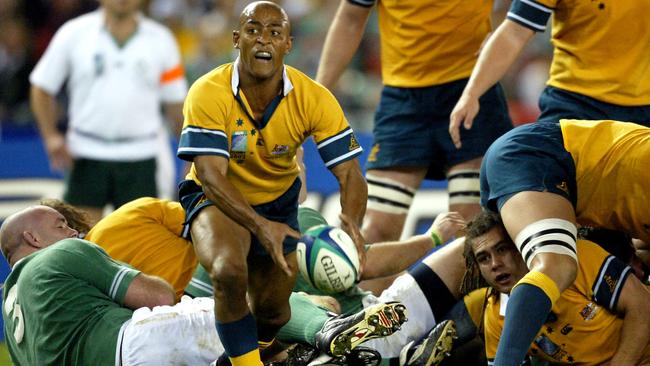
What is the banana-skin moment coming for these Wallabies?
The banana skin game is the first game against Fiji. Everyone is talking about Wales and England but Fiji are really dangerous.
They have some really good players, and look like a team who if you underestimate them, they can score points. They’re really athletic and we saw in 2007, they almost beat South Africa. Fiji look like they have the ability to do that in this World Cup as well.
Australia have to have their heads firmly switched on. It is such a dangerous thing to talk about later games in the pool, and who you might get in the quarters and all those things. It’s the next game, pure and simple.
What is Australia’s biggest strength and biggest weakness?
I think the biggest strength is we have players who had a bad experience at the last World Cup and have that bad taste in their mouth. That semi-final loss has driven them on, and there have been some really good players who’ve come on since.
They have played as a unit now for a few years and Michael Cheika has had a clear influence on the team. They’re playing for each other, and playing a style that’s very Australian.
The biggest weakness? The set-piece I suppose is something that we have to be consistently strong in, particularly the scrum.
All the chat before we play Wales and England will be all about the scrum, planting seeds and the referees will be thinking about who is the dominant scrum.
Australia have improved in the last month but they can’t afford to drop off there. They have to take it on, make a perceived weakness a surprise strength.
If Australia are to win, they’ll need a player of the tournament winner. Who can it be?
For us to win a World Cup, it is going to have to start up front. We will have to be the best team at the breakdown and the contact, so I think David Pocock is going to be huge in that regard. Michael Hooper also has the potential.
***
ROD KAFER
1999 World Cup winner
What is the one thing you have to know to win a World Cup?
That you’ve got to survive, week-to-week. Australian rugby doesn’t play enough back-to-back, hard rugby. That is something that is really unique to the World Cup and I think it is the thing that defines it. It is hard graft, consistent hard graft.
The Wallabies have to understand you have to keep getting better. You can’t have a soft game. That’s the thing that kills you in a World Cup — a soft game. Everyone has one, and you have to manage where it is.
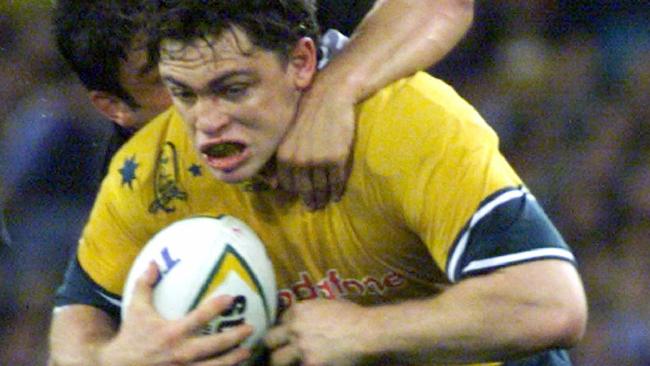
What is the banana-skin moment coming for these Wallabies?
The first two games (against Fiji and Uruguay) are a bit of an issue. For and against becomes really important because if we (Australia, England and Wales) end up with one win and one loss each, we have to understand what we have to do and achieve to maximise our potential to progress.
What splits it? Is it bonus points? Is it tries? Is just for and against?
The first two games are when Fiji and Uruguay are going to be at their best: by the third and fourth games they may be a bit tired.
England will want to set a marker in the first game against Fiji and put on a big score and we will have to go out and do the same thing.
They’re dangerous games for us. We can’t afford not to be clinical and ruthless in those first two games.
What is Australia’s biggest strength and biggest weakness?
The strength is probably resilience now. They like to play for Cheik and you can see in their attitude that mentally they are a lot stronger. I can see that in the way they carry themselves and the way they talk. It is different now.
The weakness is probably our depth in key positions. The front row is always a concern and our scrum is going to be under pressure. There’s no question.
If Australia are to win, they’ll need a player of the tournament winner. Who can it be?
Izzy (Folau) if he really lights up but it’ll be a hard-fought tournament so I think it could be one of David Pocock or Michael Hooper.
Pocock is the guy who can man of the tournament — he is in good enough form. I’ll take Pocock.
Originally published as How do you win a Rugby World Cup? We ask John Eales, Tim Horan and George Gregan

